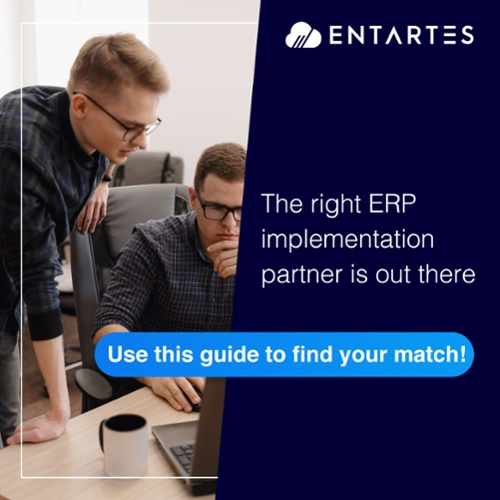As a small business, you always strive to reduce overhead expenditures, and adding a NetSuite ERP...
5 Signs It’s Time To Switch Your ERP Provider or Vendor
Changing your enterprise resource planning (ERP) software provider can be a highly challenging task, but it can also be rewarding in the long run.
The primary reason for switching your vendor is rarely just a matter of choosing a new ERP package. This change is worth it if your current cloud-based ERP implementation fails to meet customer expectations or is costing profits due to an inability to streamline business processes.
However, it is a tough choice. Financial constraints could make your company's decision-makers highly resistant to giving the green light. Other obstacles include the time needed to implement the new solution and train users, along with its short-term effect on your business operations.
But every minute you spend with an ERP solution that isn't suited for your business is a minute that you're losing productivity. The decision to change ERP providers requires you to consider several factors, including the following five signs.
1. Your Users Are Working Around The ERP
The ultimate goal of all ERP systems is to improve productivity, generally saving money and time.
So, if your end-users work around the system, this means the user experience is declining, a strong indicator that it could be time to look at new ERP software, says ERP vendor Technologies International. For example, employees who regularly perform manual processes such as working on spreadsheets outside the system are likely to benefit from this change.
However, this is a long-term objective, as modern ERP systems often have extensive functionality that creates a steep learning curve for improving employee satisfaction. Once this initial phase is over, an ERP that causes user experience to decline steadily may indicate that it's time for a change. It is most likely if your current ERP vendor has no solutions for your problems.
2. The Vendor Is No Longer The Right Fit
Your vendor's ERP prices and services probably aligned well with your business model when you first signed up. Your account could have been a high priority for your vendor at first, mostly if it was a small business. However, these benefits often disappear as ERP vendors grow quickly.
The result of this trend can be an ERP platform and service that can no longer optimize resources or provides the necessary automation based on your business model or budget. Cloud financial management company Sage Intacct says that vendor often experience rapid turnover, and this includes team members with critical knowledge about your organization. This trend can require you to spend time teaching new ERP vendor contacts about your business. This is why it's crucial that you learn to identify if it's time to look for a partner.
3. Client Support Falls Short
A prompt response to a critical service outage should be standard practice for ERP vendors. When someone needs support from an ERP provider, like our partners Oracle Netsuite, chances are they need it right away. This capability requires dedicated support, including the option of communicating with an expert after business hours via phone, chat, or email. Many providers promise this level of support, but not all of them deliver it.
According to Sage Intacct, the challenges of providing dedicated support include time zone differences and agents working on multiple projects. Regardless of the specific reasons you're unable to help on the same day that a problem occurs, this issue is often a good reason for investing in ERP. It is most likely when your vendor's visibility decreases steadily over time.
4. You Are Growing Too Fast
Another common reason for switching ERP providers is when your own business is expanding, whether into new markets, adding new products, or increasing its workforce. In all of these cases, a small vendor may be unable to keep up with your growing needs, such as searching for disperse data and maintaining inventory levels from many locations. For example, Technologies International says that ERP solutions from these vendors may not provide the efficiency that a company with a changing supply chain or resource allocations may require.
ERP vendors routinely claim they can handle businesses of any size, but most of these solutions are meant for small and medium-sized enterprises. If your operating model is changing, it may be time to start investing in ERP platforms that are better suited for you.
5. Your Provider No Longer Understands You
ERP solution vendors should do more than just set up your system and keep it running smoothly. They also must act as a consultant by ensuring you receive the modules and upgrades appropriate for your industry.
Furthermore, the best ERP vendors should also provide best practices in ERP based on your business’s process requirements, according to Sage Intacct. You may want to switch ERP vendor solutions if your current one lacks direct knowledge of your industry, especially when it affects the quality of your service.
3 Key Takeaways From This Blog
-
If your ERP platform no longer optimizes resources, affects the quality of your service, or provides the necessary automation, it could be time to switch providers.
-
Factors that you should consider when deciding to change your ERP vendor include declining user experience, vendor or the business are growing rapidly, support falls short, and the provider doesn’t understand your business.
-
When deciding on getting a new vendor, take into consideration price, user learning curve, and the implementation process.



%20(1)%20(2).webp?height=200&name=pexels-mikael-blomkvist-6476260%20(2)%20(1)%20(2).webp)


Blog Comments